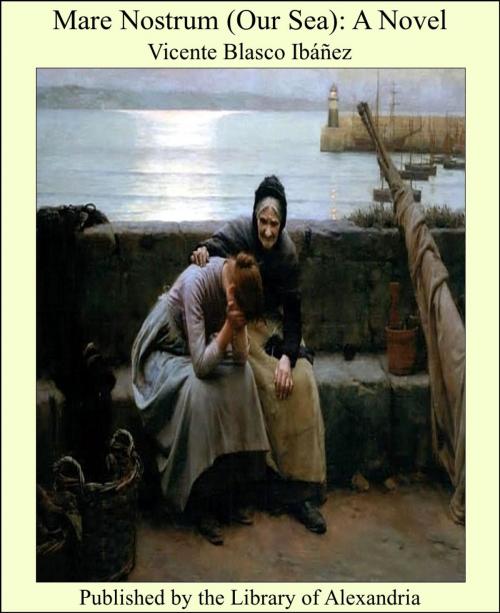Mare Nostrum (Our Sea): A Novel
Nonfiction, Religion & Spirituality, New Age, History, Fiction & Literature| Author: | Vicente Blasco Ibáñez | ISBN: | 9781465534385 |
| Publisher: | Library of Alexandria | Publication: | March 8, 2015 |
| Imprint: | Language: | English |
| Author: | Vicente Blasco Ibáñez |
| ISBN: | 9781465534385 |
| Publisher: | Library of Alexandria |
| Publication: | March 8, 2015 |
| Imprint: | |
| Language: | English |
CAPTAIN ULYSSES FERRAGUT His first gallantries were with an empress. He was ten years old, and the empress six hundred. His father, Don Esteban Ferragut—third quota of the College of Notaries—had always had a great admiration for the things of the past. He lived near the cathedral, and on Sundays and holy days, instead of following the faithful to witness the pompous ceremonials presided over by the cardinal-archbishop, used to betake himself with his wife and son to hear mass in San Juan del Hospital,—a little church sparsely attended the rest of the week. The notary, who had read Walter Scott in his youth, used to gaze on the old and turreted walls surrounding the church, and feel something of the bard's thrills about his own, his native land. The Middle Ages was the period in which he would have liked to have lived. And as he trod the flagging of the Hospitolarios, good Don Esteban, little, chubby, and near-sighted, used to feel within him the soul of a hero born too late. The Other churches, huge and rich, appeared to him with their blaze of gleaming gold, their alabaster convolutions and their jasper columns, mere monuments of insipid vulgarity. This one had been erected by the Knights of Saint John, who, united with the Templars, had aided King James in the conquest of Valencia. Upon crossing the covered passageway leading from the street to the inner court, he was accustomed to salute the Virgin of the Conquest, an image of rough stone in faded colors and dull gold, seated on a bench, brought thither by the knights of the military order. Some sour orange trees spread their branching verdure over the walls of the church,—a blackened, rough stone edifice perforated with long, narrow, window-like niches now closed with mud plaster. From the salient buttresses of its reinforcements jutted forth, in the highest parts, great fabled monsters of weather-beaten, crumbling stone
CAPTAIN ULYSSES FERRAGUT His first gallantries were with an empress. He was ten years old, and the empress six hundred. His father, Don Esteban Ferragut—third quota of the College of Notaries—had always had a great admiration for the things of the past. He lived near the cathedral, and on Sundays and holy days, instead of following the faithful to witness the pompous ceremonials presided over by the cardinal-archbishop, used to betake himself with his wife and son to hear mass in San Juan del Hospital,—a little church sparsely attended the rest of the week. The notary, who had read Walter Scott in his youth, used to gaze on the old and turreted walls surrounding the church, and feel something of the bard's thrills about his own, his native land. The Middle Ages was the period in which he would have liked to have lived. And as he trod the flagging of the Hospitolarios, good Don Esteban, little, chubby, and near-sighted, used to feel within him the soul of a hero born too late. The Other churches, huge and rich, appeared to him with their blaze of gleaming gold, their alabaster convolutions and their jasper columns, mere monuments of insipid vulgarity. This one had been erected by the Knights of Saint John, who, united with the Templars, had aided King James in the conquest of Valencia. Upon crossing the covered passageway leading from the street to the inner court, he was accustomed to salute the Virgin of the Conquest, an image of rough stone in faded colors and dull gold, seated on a bench, brought thither by the knights of the military order. Some sour orange trees spread their branching verdure over the walls of the church,—a blackened, rough stone edifice perforated with long, narrow, window-like niches now closed with mud plaster. From the salient buttresses of its reinforcements jutted forth, in the highest parts, great fabled monsters of weather-beaten, crumbling stone















